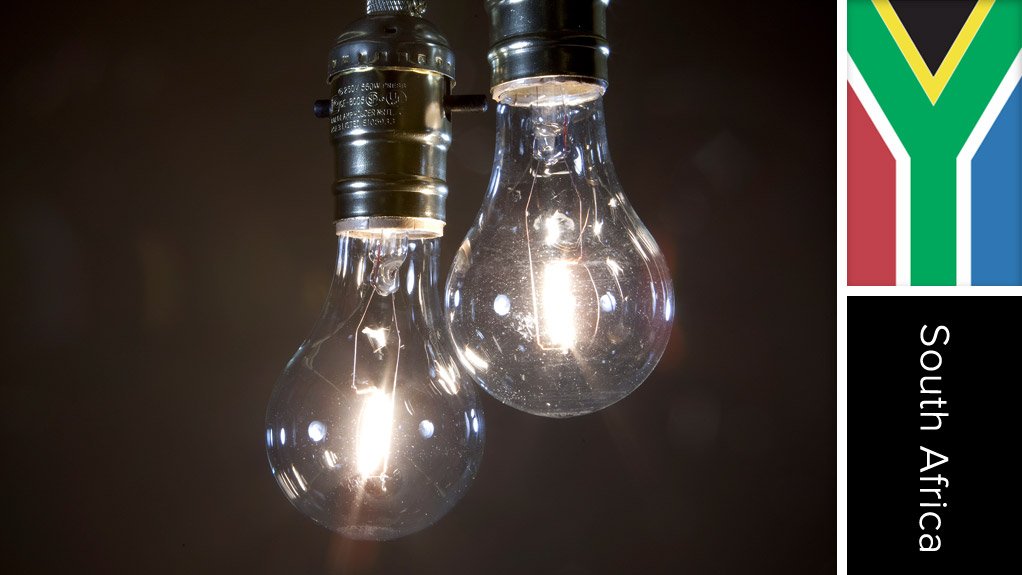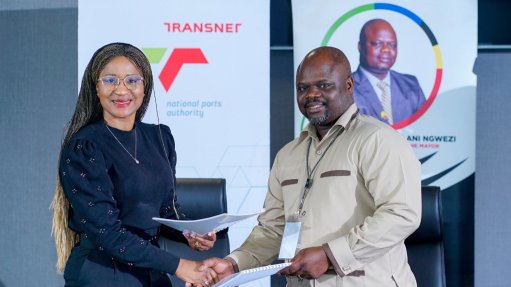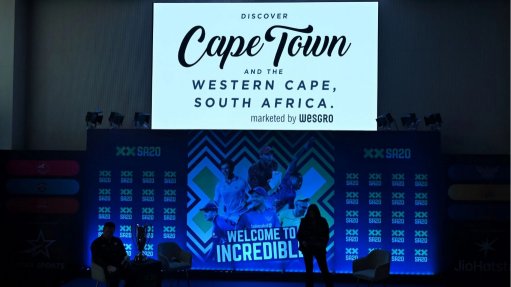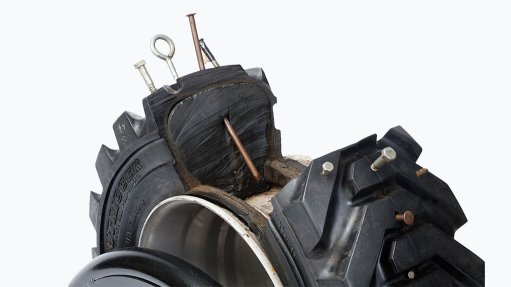Medupi power station project, South Africa
Name of the Project
Medupi power station project.
Location
Medupi is located on an 883 ha site in Lephalale, Limpopo, in South Africa.
Project Owner/s
State-owned power utility Eskom.
Project Description
Medupi will be the fourth-largest coal-fired power plant and the largest dry-cooled power station in the world. The power station will comprise six units with an installed capacity of 4 764 MW.
The planned operational life of the station is 50 years.
The power station will use high-tech supercritical boilers, which will operate at higher temperatures and pressures, compared with that of older boilers, thereby providing greater efficiency. Supercritical technology will result in more efficient use of natural resources, such as water and coal, and will have an improved environmental performance and footprint.
It is the first baseload coal-fired power station to be built in South Africa in more than 20 years and its delivery on schedule is viewed as critical.
The project is somewhat unique because Medupi is being built in reverse order – traditionally Eskom has always started building Unit 1 and ended with Unit 6. This new approach is the result of the rock agglomeration on the southern side of the site, which was excavated and reused for engineering fill on the northern side.
The project forms part of the utility’s integrated strategic electricity plan and is designed to be flue-gas desulphurisation (FGD) ready.
Potential Job Creation
About 18 000 construction contractor employees and 2 000 supporting staff were employed at the peak of construction.
Capital Expenditure
In July 2016, Eskom officially updated its cost-to-completion estimates for Medupi. The State-owned utility reported that Medupi was now expected to cost R145-billion, rather than the earlier revised estimate of R105-billion.
The cumulative cost incurred on the project until the year ended March 31, 2019, was not available at the time of going to print.
Planned Start /End Date
Medupi was initially scheduled to be fully operational in 2013, instead it may now be completed only in 2021.
The first unit, Unit 6, was synchronised to the grid on March 2, 2015. It attained full power (796 MW) on May 26, 2015, and attained commercial operation on August 23, 2015.
Unit 5 was first synchronised to the national grid on September 8, 2016. It reached full power (796 MW) on December 17, 2016, and attained commercial operation on April 3, 2017.
Unit 4 was first synchronised to the national grid on May 31, 2017. It reached full power (796 MW) on June 19, 2017, and attained commercial operation on November 28, 2017.
Unit 3 was first synchronised to the national grid on April 8, 2018. It reached full power (796 MW) on May 16, 2018, and attained commercial operation on June 28, 2019.
Unit 2 was synchronised to the national grid on October 7, 2018. It reached commercial operation status on November 12, 2019.
Unit 1 was synchronised to the grid on August 27, 2019. The unit is expected to reach full commercial operation ahead of its scheduled deadline in November 2020.
Latest Developments
Eskom is rolling out design modifications, made recently to units 3 to 6 of the Medupi power plant, rather than waiting for the results of an evaluation of the fixes, which is proceeding in parallel.
Unit 3 was shut for 75 days on January 26 to address defects that emerged, mostly with regard to the boiler plant, after the unit entered into commercial operation in June 2018.
The defects are believed to be generic to all units installed to date at Medupi and Kusile, preventing them from attaining output levels in line with their 790 MW-plus nameplates.
It emerged earlier this year that most of the operating units at Medupi and Kusile were delivering at rates of between 350 MW and 400 MW.
COO Jan Oberholzer confirmed on May 21 that Unit 3 had started to produce at 793 MW after the outage, which was completed on schedule, notwithstanding work restrictions imposed on site, as a result of the Covid-19 lockdown. It was, on average, injecting 729 MW of that output into the grid.
He also announced that, despite an ongoing assessment of the efficacy of the remedies, which would endure for up to four months, Unit 6 was undergoing similar modifications, owing to Eskom’s confidence in the modifications made.
Medupi Unit 1 would be similarly repaired in May, followed by units 4 and 2 in July and August, while Unit 5 was scheduled to enter a 75-day outage in November.
Eskom and Mitsubishi Hitachi, the boiler supplier, have reportedly agreed to share the commercial burden of the defect repairs on a 50:50 basis, but no final cost estimate has been provided.
A process is also being established to determine liability for the defects and, once that process has been concluded, the party liable will refund the other.
Eskom is still working on cost-to-completion estimates for Medupi and Kusile of R145-billion and R161.4-billion respectively. However, many commentators warn that these costs are likely to rise further.
Eskom intends to deliver Medupi to its generation division, headed by newly appointed divisional MD Bheki Nxumalo, by the end of the financial year.
Similar modifications will also be implemented across the Kusile units.
Oberholzer has also confirmed that the Eskom board was briefed in April on a proposal to explore alternatives to the installation of flue-gas desulphurisation (FGD) units at Medupi, a requirement of the 2010 World Bank loan of $3.75-billion.
The retrofitting of the units with FGD will involve capital expenditure of more than R35-billion, which will be difficult in light of Eskom’s financial constraints.
It will also make the power station far more water intensive and reduce its overall nameplate capacity by 90 MW.
The request is for the board to provide the executives with six to nine months to assess alternatives that nevertheless honours Eskom’s air-quality commitments to its financing partners, including the World Bank.
Key Contracts and Suppliers
Principal Contracts:
Parsons Brinckerhoff (execution partner); Roshcon (enabling civils); Rula Bulk Materials Handling (coal overland conveyor and ash dump conveyor); Mitsubishi Hitachi Power Systems Africa, or MHMPSA (boiler); Alstom S&E Africa (turbine); LP Services consortium (low-pressure services); Alula Water (water treatment plant); Karrena-Concor joint venture, or JV (chimneys and silos); MPS JV (main civils); Actom (electrical power installation and medium-voltage switchgear); General Electric (low-voltage switchgear system); Siemens (auxiliary transformers and generator transformers); Standby Systems (uninterruptible power supply); Alstom C&I (control and instrumentation); Honeywell Automation & Control Solutions South Africa (fire detection and access control); T-Systems (information technology (IT) and IT infrastructure); Siemens ACI Open Consortium (laboratory and analysers); Civcon/G4 JV (miscellaneous infrastructure and reservoirs); Basil Read (buildings, ash dump infrastructure, clarifiers and coal stock yard extension); NCI (diesel generators); thyssenkrupp Materials Handling (coal stockyard equipment); Clyde Bergemann Africa (dust handling and conditioning systems); ELB Engineering Services (terrace coal and ash, dust handling plants); Aveng Grinaker-LTA (buildings phases 1 and 3); Nugen Technologies (nitrogen); Stefanutti Stocks/Mathomamayo JV (raw-water pumpstation and substation) and Exxaro (coal supply).
Contact Details for Project Information
Eskom media desk, email mediadesk@eskom.co.za.
Article Enquiry
Email Article
Save Article
To advertise email advertising@creamermedia.co.za or click here
Comments
Press Office
Announcements
What's On
Subscribe to improve your user experience...
Option 1 (equivalent of R125 a month):
Receive a weekly copy of Creamer Media's Engineering News & Mining Weekly magazine
(print copy for those in South Africa and e-magazine for those outside of South Africa)
Receive daily email newsletters
Access to full search results
Access archive of magazine back copies
Access to Projects in Progress
Access to ONE Research Report of your choice in PDF format
Option 2 (equivalent of R375 a month):
All benefits from Option 1
PLUS
Access to Creamer Media's Research Channel Africa for ALL Research Reports, in PDF format, on various industrial and mining sectors
including Electricity; Water; Energy Transition; Hydrogen; Roads, Rail and Ports; Coal; Gold; Platinum; Battery Metals; etc.
Already a subscriber?
Forgotten your password?
Receive weekly copy of Creamer Media's Engineering News & Mining Weekly magazine (print copy for those in South Africa and e-magazine for those outside of South Africa)
➕
Recieve daily email newsletters
➕
Access to full search results
➕
Access archive of magazine back copies
➕
Access to Projects in Progress
➕
Access to ONE Research Report of your choice in PDF format
RESEARCH CHANNEL AFRICA
R4500 (equivalent of R375 a month)
SUBSCRIBEAll benefits from Option 1
➕
Access to Creamer Media's Research Channel Africa for ALL Research Reports on various industrial and mining sectors, in PDF format, including on:
Electricity
➕
Water
➕
Energy Transition
➕
Hydrogen
➕
Roads, Rail and Ports
➕
Coal
➕
Gold
➕
Platinum
➕
Battery Metals
➕
etc.
Receive all benefits from Option 1 or Option 2 delivered to numerous people at your company
➕
Multiple User names and Passwords for simultaneous log-ins
➕
Intranet integration access to all in your organisation





















